Caffeine is a common ingredient found in energy drinks, providing a stimulating effect that can help increase alertness and combat fatigue. These beverages have gained popularity for their ability to provide a quick energy boost.
The caffeine content in energy drinks can enhance mental focus and improve physical performance, making them appealing to those needing an extra jolt of energy. Caffeine is also known to increase metabolism and temporarily ward off drowsiness, which can be beneficial during busy or demanding periods.
Nonetheless, it is crucial to be mindful of the potential drawbacks. Excessive caffeine intake can lead to adverse effects such as increased heart rate, restlessness, anxiety, and difficulty sleeping. FDA and Health Canada do not recommend more than 400mg of caffeine a day. These drinks are meant for adults and are not recommended for children.
Though energy drinks can provide a temporary energy boost, it is important to consume them in moderation and consider the potential impact on overall health and well-being.
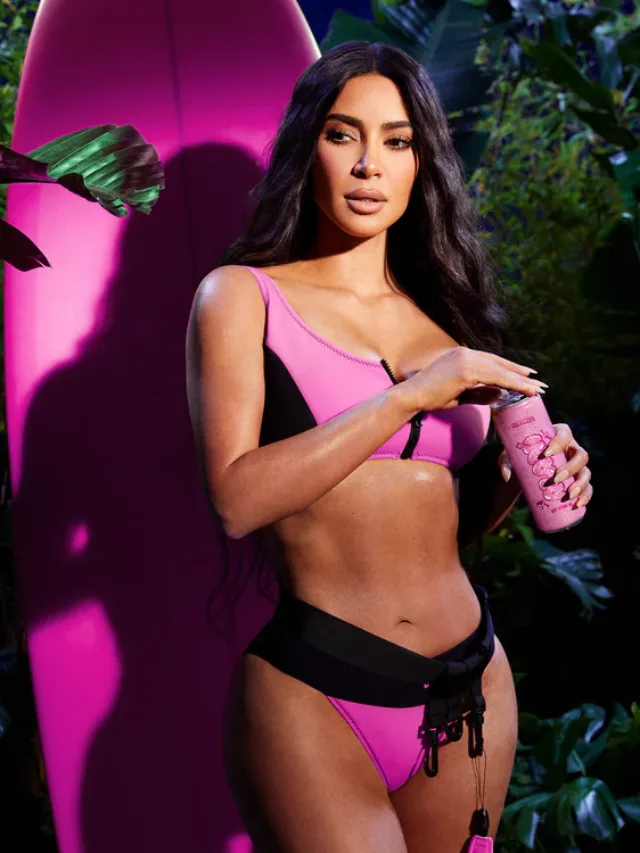
Source: Alani Nu Energy Drink “Kimade”
In this post, we will be exploring the caffeine content in popular energy drinks compared to coffee, tea, and other common soft drinks.
| Beverage | Caffeine milligram (per 12 oz/355 ml- can/cup) |
| Coca-Cola | 34 |
| Pepsi | 38 |
| Green Tea(*8.4 oz./250 ml) | 45 |
| Black Tea(*8.4 oz./250 ml) | 70 |
| Coffee(*8.4 oz./250 ml) | 95 |
| Red Bull Energy Drink | 110 |
| Monster Energy Drink | 160 |
| Rockstar Energy Drink | 180 |
| Prime Energy Drink | 200 |
| C4 Energy Drink | 200 |
| Alani Nu Energy Drink | 200 |
| Celsius Energy Drink | 200 |
| 5-hour Energy Drink | 200 |
| Ghost Energy Drink (16 oz./473ml) | 200 |
| Bang Energy Drink (16 oz./473ml) | 300 |
Please note that the caffeine content mentioned here is based on the standard serving size of a 12 oz. can, except for Ghost and Bang Energy Drinks. The caffeine content of tea and coffee can vary depending on factors such as the type, brewing method, and steeping time. However, it is important to check the specific product and serving size to get the most accurate and up-to-date information on caffeine content.
Let’s check it in a visual graphic form to understand the comparable caffeine contents more easily by looking at the below caffeine chart:
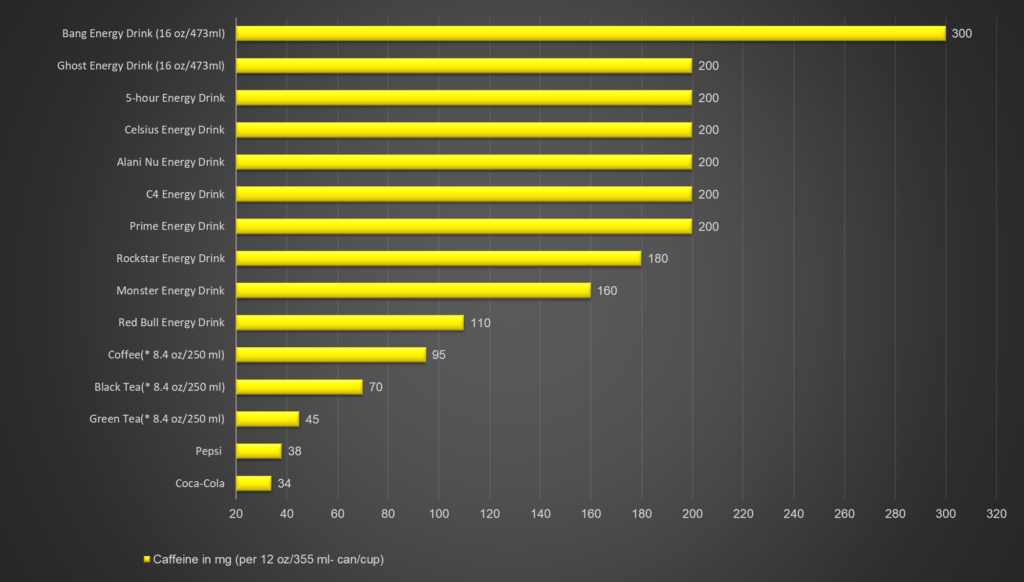
To make informed decisions about energy drink consumption, it is vital to pay attention to the information provided on product labels. This information empowers consumers to make choices that align with their individual caffeine sensitivity and health goals.
Please check out my other popular Energy Drink Reviews here. https://thedrinkinsider.com/category/blog/
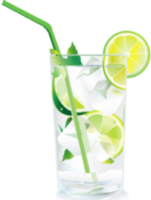
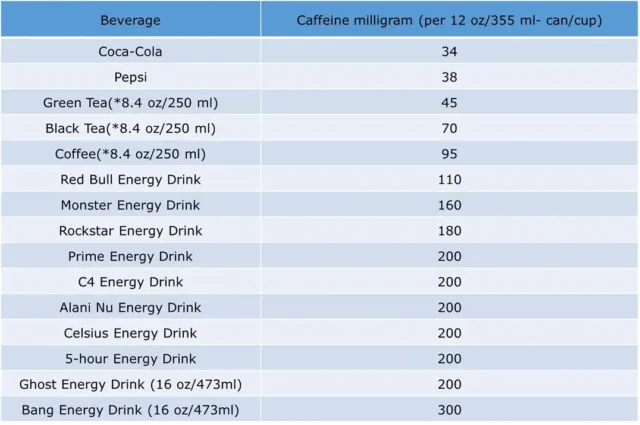
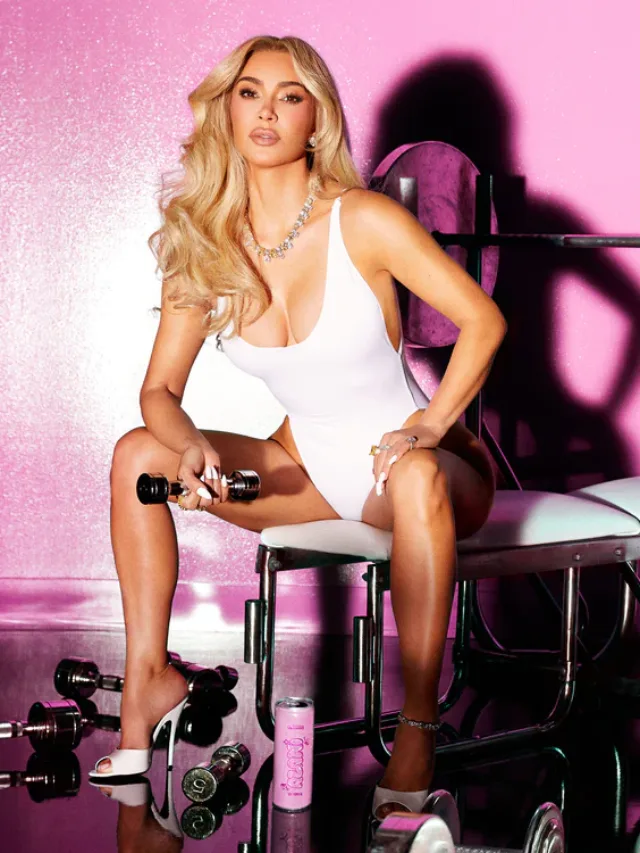
1 thought on “Caffeine in Energy Drinks VS Coffee, Tea, and Soft Drinks”
Comments are closed.